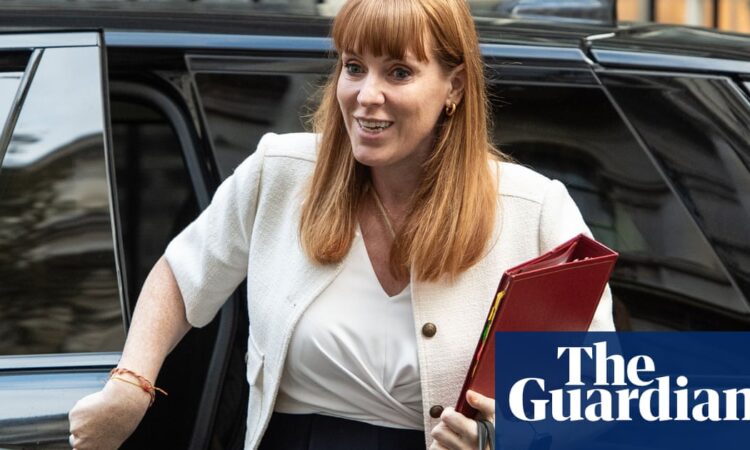
Unions are calling on ministers to undo “years of damage to the housing sector” by the previous Conservative government and honour its pledge to tackle the housing emergency by introducing a form of rent cap.
Steve North, the president of Unison, the UK’s largest union; Mick Lynch, the general secretary of the Rail, Maritime and Transport union (RMT), and Matt Wrack, the general secretary of the Fire Brigades Union, are among seven major union leaders and 19 signatories, including thinktanks, renters’ groups and an estate agency firm, to back the calls.
While they acknowledged the party’s plans to tackle the housing emergency and welcomed the renters’ rights bill, which will end no-fault evictions, they said an absence of robust policy to tackle the root cause of unaffordable rents would continue to push millions into poverty and homelessness.
In a letter to Angela Rayner, the deputy prime minister, who oversees the housing brief, they note: “Between 2021 and 2025, the government is set to spend £70bn of taxpayers’ money on housing benefit for private tenancies, with an additional £1.74bn annual spend on temporary accommodation. More affordable rents would take pressure off councils and the public purse, freeing up funds that could be invested in much-needed social and council housing.”
The signatories urged the government to devolve powers to metro mayors so they could introduce rent caps, “invest in a mass expansion of public housing”, and give councils enough recourse to “buy up homes that private landlords want to sell and convert them into social housing”.
Weeks before Labour launched its election manifesto, which set out ambitious targets for housebuilding to solve the crisis, the party rejected proposals in a report it had commissioned to cap rent rises at either consumer price inflation or local wage growth, whichever was lower, across England and Wales.
Despite a backlash from landlords, Stephen Cowan, who wrote the report, noted the “double-locked” rent caps would not have had an adverse impact on levels of supply or investment, with the backing of a number of economists and housing groups.
The letter to Rayner adds: “The overwhelming majority of new homes will be unaffordable to people on lower incomes and there are widespread concerns that the targets promised will not significantly decrease prices … Generation Rent estimates that an extra 20 homes per 1,000 people would only improve affordability by 2.8% of average incomes.
“Combined with the fact that major housebuilders such as Barratt are reducing their own build targets, it is clear that housebuilding alone cannot tackle the scale and urgency of the affordability crisis.”
Daniel Kebede, the general secretary of the National Education Union, said: “After years of austerity, the rising cost of rent is pushing communities to the brink. Teachers and school support staff are unable to keep up with skyrocketing rents.
“Children cannot learn when they are growing up in insecure homes or living in cramped temporary accommodation. Schools in London are closing because families cannot afford to live in the area and education funding is inadequate.”
after newsletter promotion
Elyen Chej, a spokesperson for the London Renters Union, added: “Rents are out of control. Year after year, tenants have been subjected to relentless rent hikes, leaving millions struggling to afford even the basics. The government must take immediate action to slam the brakes on rising rents so that everyone in this country has a secure place to call home.”
A spokesperson for the Ministry of Housing, Communities and Local Government said: “Rent controls restrict housing supply and evidence shows they result in an increase in rental prices, which would not benefit tenants.
“Our bill takes practical steps to help renters by ending bidding wars and empowering tenants to tackle unreasonable rent hikes.”
